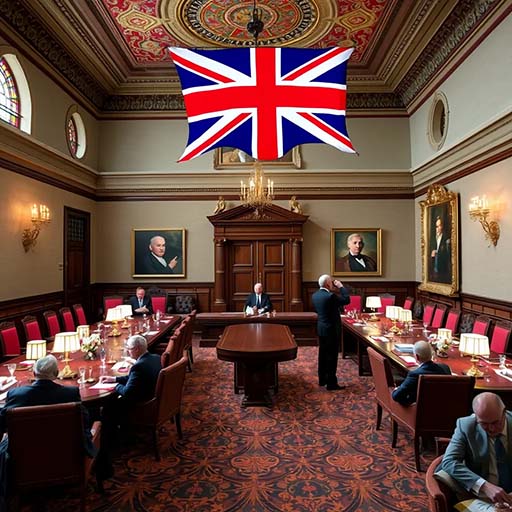The Sunday Times Tax List 2025 reveals the top 100 taxpayers in the UK, each contributing at least £10 million to HMRC. This year’s list is a fascinating mix of hedge fund managers, cultural icons, and business magnates, offering insights into the sectors and regions driving the UK’s economy.
At the top of the list is Sir Chris Hohn, the hedge fund manager and founder of TCI, who contributed a huge £339.5 million in taxes. Hohn, the son of a Jamaican car mechanic, has consistently topped the Tax List, with his total contributions since 2019 reaching nearly a billion pounds. His firm, TCI, is a major contributor to corporation tax, and Hohn is also the first person to top both the Tax List and The Sunday Times Giving List, highlighting his dual role as a taxpayer and philanthropist.
Following Hohn are the Done brothers of Betfred, who contributed £273.4 million, and the Coates family of Bet365, who coughed up £265 million to the Treasury. These figures underscore the dominance of the gambling sector in our tax landscape, with Betfred and Bet365 alone contributing billions over the years.
Cultural icons also feature prominently such as JK Rowling, the creator of Harry Potter. She ranks 27th with a tax contribution of £47 million, while Ed Sheeran, the musician, comes in at 60th with £19.9 million. Even legendary rock band Queen makes its debut on the list, contributing £12.5 million from royalties, musicals, and film revenues.
The gambling sector is the most represented in this year’s Tax List, with 11 entries contributing nearly £3.7 billion over the past seven years. Betfred and Bet365 are the standout players, but gambling in the UK being a large tax contributor definitely raises questions and concerns.
Construction is the second most represented sector, with 11 entries, including the Murphy family, who have worked on major infrastructure projects like the Channel Tunnel and HS2. The Bamford family, owners of JCB, also feature prominently, contributing £121.3 million in taxes.
Other notable sectors include property, with the Duke of Westminster and the Grosvenor family contributing £57.1 million, and distilling, with Glenn Gordon of Glenfiddich and Grant’s whisky paying £113.3 million.
London remains our economic powerhouse, doing little to dispel the breadbasket of the UK trope. With 21 entries contributing £1.04 billion in taxes, London leads the regional pack. The Midlands and Northwest are close behind, with 14 and 13 entries, respectively. These regions are home to major businesses like JCB (Midlands) and Bet365 (Northwest), highlighting their importance to the economy.
Wales and Scotland also make significant contributions. Henry Engelhardt, founder of Admiral Insurance, is one of five entries from Wales, while the Thomson family, owners of the Beano and Dundee-based businesses, represent Scotland with a tax contribution of £36.9 million.
The total tax contribution from the top 100 taxpayers fell by 6.8% to £4.985 billion, reflecting sluggish economic growth and reduced corporate profits. However, a record 15 individuals or families paid over £100 million in taxes, up from 9 in 2024 - suggesting that while some sectors are thriving, others are feeling the pinch of economic downturn.
Only 46 entries paid more in 2025 than in 2024, highlighting the challenges faced by businesses in a volatile economic climate. The government’s reliance on high earners for tax revenue is also evident, with the wealthiest 1% of UK earners paying 29% of income tax in 2023-24, up from 11% in 1978-79.
Many of the individuals on the Tax List are also notable philanthropists. Sir Chris Hohn’s firm, TCI, pledged large amounts to charity in 2023, while Ed Sheeran launched a foundation to provide music education to thousands of young people. John Timpson, of Timpson cobblers, and his late wife fostered 90 children, showcasing the social contributions of some of the UK’s wealthiest individuals.
One of the most contentious issues in this year’s Tax List is the government’s proposed changes to inheritance tax. The chancellor plans to cap business property relief at £1 million, with a 20% tax above this level. Critics, including Sir James Dyson, warn that this could harm family-owned businesses, forcing them to cull jobs or sell up altogether.


